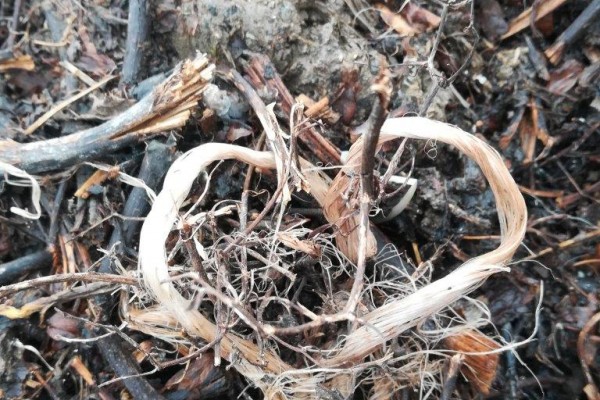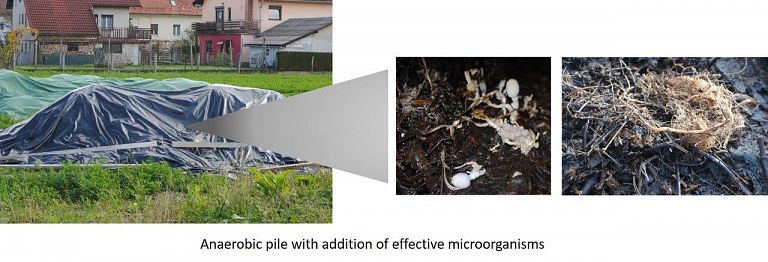Compost is suitable for use as organic fertilizer if it meets the requirements of the regulation governing the introduction of dangerous substances and plant matter into the soil. Currently, there is a problem of polypropylene (PP) twine intertwined with hop biomass after harvest. That is why its category is denoted as low or no value crop residue. It is not wanted by the farmers because PP remnants are applied and accumulated in the tillage soil, and on the other hand there are immense difficulties to sieve PP out of the mass even if the special sieving machines are rented.
With the BioTHOP PLA twine, mixed in the hop waste after the harvesting process, much higher category of the compost is expected to be produced. Lankhorst (LEP) will produce on site compostable BioTHOP PLA twine, which will be used in hop fields as support for hop plants, IHPS will compost 100 tons of that biomass various ways in 2019 and in 2020 in order to make technological guidelines for proper composting to get a fine, high value compost.

Action B1 will also produce the valuable raw material from the hop waste after harvest for its operative demonstration in Actions B3 and B4 and for the transferability activities in Action B5; Zelfo Technology will prepare that biomass, intertwined with BioTHOP PLA twine, in a way that it will be usable for further work of Tecnopackaging (TECNO) and TRIDAS in Actions B3 and B4.
Within this Action, three deliverables will be made, which can be found among Deliverables:
- B1.D1 Complete quality analyses & guidelines for on-site hop biomass composting process
- B1.D2 Hop fibre sheets optimization and production
- B1.D3 Hop fibre reinforced composite optimization and production



